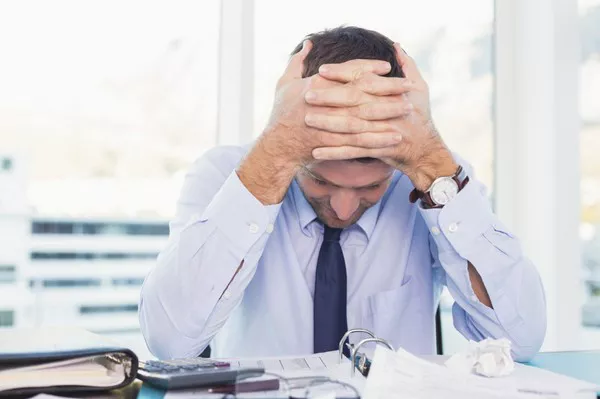Social anxiety, a condition marked by intense fear and apprehension in social situations, can be paralyzing for those who suffer from it. While many people experience occasional nervousness in social settings, severe social anxiety is a chronic mental health condition that goes beyond normal shyness or introversion. Recognizing the symptoms of severe social anxiety is crucial for seeking appropriate help and support. This article delves into the various symptoms of severe social anxiety, shedding light on its impact on daily life and offering insights into managing this challenging condition.
Physical Symptoms of Severe Social Anxiety
1. Rapid Heartbeat and Palpitations
One of the most common physical symptoms of severe social anxiety is an accelerated heartbeat. When faced with a social situation, individuals may experience palpitations, where the heart feels like it’s pounding or fluttering. This symptom is a result of the body’s fight-or-flight response, triggered by the perceived threat of social interaction.
2. Sweating
Excessive sweating, particularly on the palms, face, and underarms, is another prevalent symptom. This can be highly embarrassing for individuals and may exacerbate their anxiety, creating a vicious cycle of fear and physical reaction.
3. Trembling or Shaking
Severe social anxiety can cause noticeable trembling or shaking, especially in the hands and voice. This symptom can be particularly distressing in situations where the individual is required to speak or perform in front of others.
4. Shortness of Breath
Feeling breathless or experiencing difficulty in breathing is a common symptom during anxiety-provoking social situations. This can make individuals feel as though they are suffocating, further intensifying their fear and discomfort.
5. Nausea and Gastrointestinal Distress
The body’s response to severe social anxiety often includes gastrointestinal symptoms such as nausea, stomach cramps, and diarrhea. These physical manifestations can deter individuals from participating in social activities due to the fear of these symptoms occurring in public.
Emotional and Psychological Symptoms
1. Intense Fear of Judgment
A hallmark of severe social anxiety is the overwhelming fear of being judged or scrutinized by others. Individuals may worry excessively about being embarrassed or humiliated, leading to avoidance of social situations altogether.
2. Extreme Self-Consciousness
People with severe social anxiety often experience heightened self-consciousness, where they are acutely aware of their own actions and believe others are equally focused on them. This can lead to constant self-monitoring and a paralyzing fear of making mistakes.
3. Anticipatory Anxiety
Anticipatory anxiety refers to the intense fear and dread that individuals feel before a social event or interaction. This can occur days, weeks, or even months in advance, causing significant distress and impacting daily functioning.
4. Negative Self-Perception
Individuals with severe social anxiety frequently have a negative self-perception. They may view themselves as inadequate, unattractive, or unworthy of social acceptance. This distorted self-image fuels their anxiety and perpetuates avoidance behaviors.
5. Panic Attacks
Severe social anxiety can trigger panic attacks, characterized by sudden and intense fear, accompanied by physical symptoms such as chest pain, dizziness, and a sense of impending doom. These episodes can be terrifying and debilitating, further reinforcing the avoidance of social situations.
Behavioral Symptoms
1. Avoidance of Social Situations
One of the most significant behavioral symptoms is the avoidance of social interactions and situations. Individuals may go to great lengths to evade parties, meetings, public speaking, or any scenario that requires social engagement. This avoidance can lead to isolation and a diminished quality of life.
2. Safety Behaviors
To cope with their anxiety, individuals might engage in safety behaviors. These are actions taken to reduce perceived threats, such as avoiding eye contact, staying on the periphery of social gatherings, or clinging to a trusted friend or family member. While these behaviors provide temporary relief, they ultimately reinforce the anxiety.
3. Difficulty with Daily Activities
Severe social anxiety can interfere with routine activities, such as shopping, eating in public, or using public transportation. The fear of encountering social interactions in these settings can be so overwhelming that individuals may limit their participation in everyday tasks.
4. Substance Use
In an attempt to manage their anxiety, some individuals may turn to alcohol or drugs. While these substances might offer short-term relief, they can lead to dependency and exacerbate the underlying anxiety, creating a harmful cycle of substance abuse and social anxiety.
5. Procrastination and Perfectionism
People with severe social anxiety often exhibit procrastination and perfectionism. They may delay tasks due to fear of judgment and strive for unattainable standards, which can paralyze them and prevent them from completing necessary activities.
See Also: Why Do I Get Anxiety When I Leave Work?
Impact on Relationships and Work
1. Strained Relationships
Severe social anxiety can take a toll on personal relationships. The avoidance of social gatherings and the difficulty in expressing oneself can lead to misunderstandings, frustration, and alienation from friends and family. Maintaining close relationships becomes challenging when anxiety dictates social interactions.
2. Impaired Work Performance
In the workplace, severe social anxiety can hinder performance. Tasks that require interaction with colleagues, presentations, or participating in meetings can be daunting. As a result, individuals may miss out on career advancement opportunities or struggle to maintain employment.
3. Isolation and Loneliness
The pervasive avoidance of social situations often leads to isolation and loneliness. Individuals with severe social anxiety may feel disconnected from others and experience a sense of alienation, which can exacerbate their condition and lead to depression.
Seeking Help and Treatment
1. Cognitive Behavioral Therapy (CBT)
CBT is a highly effective treatment for severe social anxiety. It focuses on identifying and challenging negative thought patterns and behaviors. Through exposure therapy, individuals gradually face feared social situations, reducing their anxiety over time.
2. Medication
Selective serotonin reuptake inhibitors (SSRIs) and other anti-anxiety medications can be prescribed to help manage severe social anxiety. These medications can reduce symptoms and improve quality of life when used in conjunction with therapy.
3. Support Groups
Joining a support group can provide a sense of community and understanding. Sharing experiences with others who face similar challenges can offer comfort and practical advice for managing anxiety.
4. Mindfulness and Relaxation Techniques
Mindfulness practices and relaxation techniques, such as deep breathing exercises, meditation, and yoga, can help individuals manage their anxiety symptoms. These techniques promote relaxation and reduce the physical and emotional impact of anxiety.
5. Professional Counseling
Working with a licensed therapist can provide personalized strategies for coping with severe social anxiety. Therapists can help individuals develop social skills, build confidence, and create a plan for facing anxiety-provoking situations.
Conclusion
Severe social anxiety is a complex and debilitating condition that affects every aspect of an individual’s life. Recognizing the symptoms is the first step toward seeking help and support. With the right treatment and strategies, individuals can learn to manage their anxiety and lead fulfilling lives. If you or someone you know is struggling with severe social anxiety, reach out to a mental health professional for guidance and support. Early intervention and treatment can make a significant difference in overcoming this challenging condition.
Related topics:






















